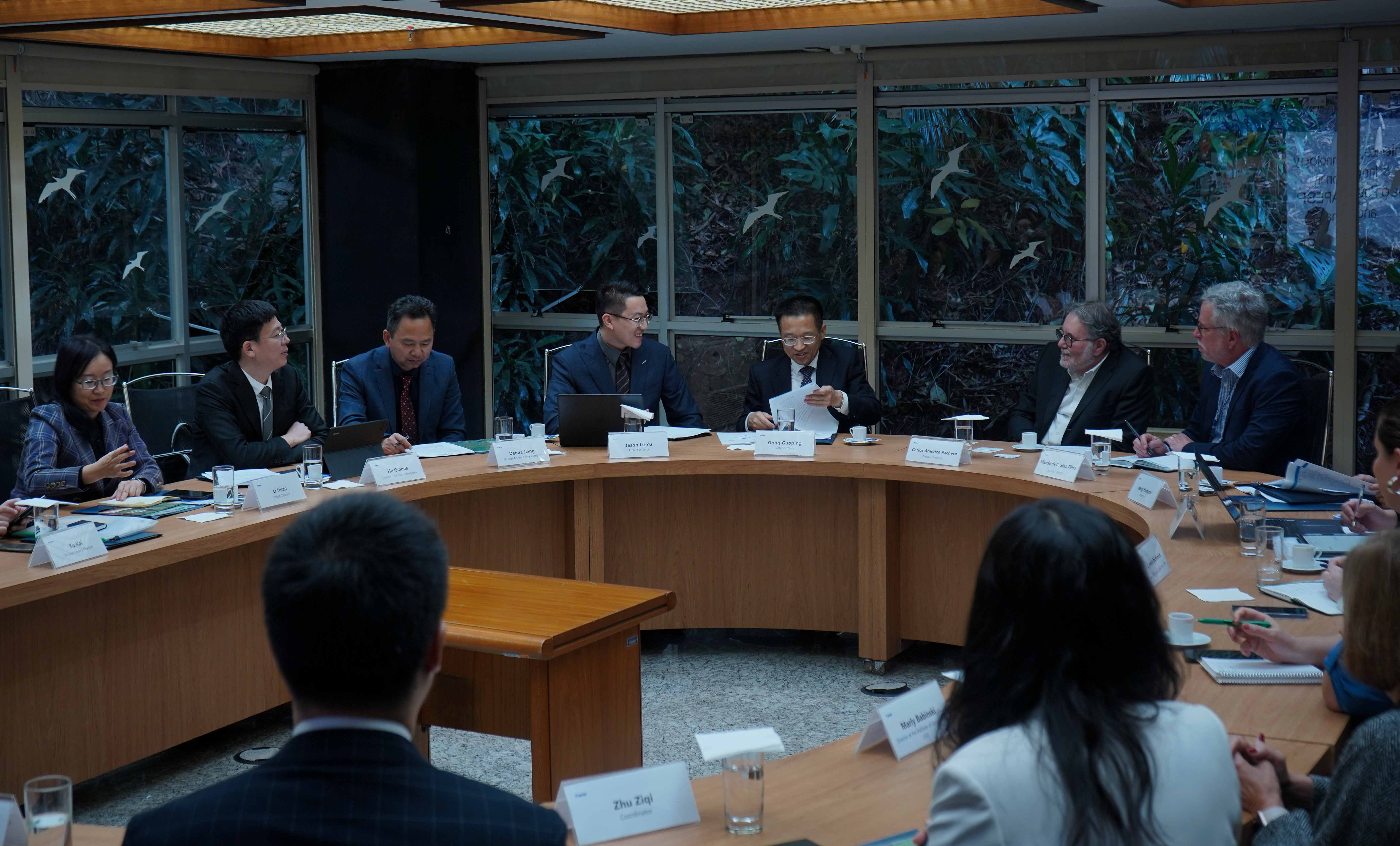


The meeting took place on July 22 at FAPESP’s headquarters in São Paulo (photo: Daniel Antonio/Agência FAPESP)
Published on 08/05/2024
Agência FAPESP – On July 22, senior executives of FAPESP welcomed a Chinese delegation from Guangdong Province’s Department of Science and Technology. The meeting was one of the developments arising from FAPESP Week China, held in June, and discussed strategies to intensify collaboration between researchers in China and São Paulo state.
FAPESP Week China took place in the cities of Shenzen and Dongguan, and was organized in partnership with China-LAC Technology Transfer Center (CLTTC, where LAC stands for Latin America and the Caribbean). CLTTC is an arm of the Guangdong Department of Science and Technology and signed a cooperation agreement with FAPESP in December 2023.
“We plan to issue a joint call for proposals. We’re analyzing whether it will be necessary to sign a new agreement and what areas of mutual interest to include in the call,” Carlos Américo Pacheco, FAPESP’s CEO, told Agência FAPESP.
The Chinese delegation was led by Gong Guoping, Director, Department of S&T, Guangdong Province. In his remarks, he stressed the economic prosperity of the province, which is in South China’s Greater Bay Area, a megalopolis comprising nine cities (Shenzhen, Guangzhou, Zhuhai, Foshan, Dongguan, Zhongshan, Jiangmen, Huizhou and Zhaoqing) and two Special Administrative Regions (Hong Kong and Macau). The area is often referred to as “China’s Silicon Valley”.
“Since 1989, in terms of gross domestic product [GDP], Guangdong Province has been number one in China. We’re also well-established in science, technology and innovation. Our investment in research and development last year was equivalent to USD 63 billion, or 3.4% of GDP,” Gong said.
The area is also at the forefront of China’s development in numbers of researchers, valid invention patents, and high-tech companies, including Huawei, Tencent, BYD, Midea and Gree, he added.
“President Xi Jinping has determined that we’re to create high-value and high-tech sectors to support other countries. On this basis, Guangdong Province’s Department of S&T has established scientific and technological exchanges with more than 100 countries and regions. Brazil is considered a leader of its region and is well-established in many sectors, so we’re pleased to make connections with your country. We know FAPESP is a recognized public agency, and for this reason it’s a pleasure to be here,” he said.
Pacheco presented information about São Paulo, noting that the state corresponds to only 3% of Brazil’s land mass and yet is home to 20% of its total population and 42% of the science produced in Brazil. He also detailed the various funding lines offered by FAPESP.
“We already have strong collaborations with China in areas such as physics and astronomy. Bilateral groups are working in medicine, engineering and biochemistry, among other areas. It should be stressed that the impact of collaborative research is always greater than that of research conducted in isolation,” Pacheco said. “Marcio [de Castro Silva Filho, FAPESP’s Scientific Director] and I visited Guangdong Province three weeks ago, and observed many opportunities for cooperation, so we’re very happy to welcome you today.”
“We had an exciting meeting in China three weeks ago,” Silva Filho said. “We took a delegation of 36 people from different universities in São Paulo state. We visited the National Natural Science Foundation of China, companies like BYD, Huawei and BGI, and universities. We were impressed by China’s progress, especially in science and technology. China is a scientific heavyweight, and we’re keen to increase interaction with Chinese scientists.”
The Chinese delegation also included Yu Kai, Deputy Director, Department of S&T, Guangdong Province; Jiang Hongbo, Director, Guangdong International S&T Cooperation Center; Geng Yan, Section Head, Guangdong International S&T Cooperation Center; Hu Qinhua, President, CLTTC; Li Huan, Deputy Director, Office of International Cooperation and Exchange, Dongguan University of Technology; Zhu Ziqi, Coordinator, Office of International Cooperation and Exchange, Dongguan University of Technology; and Jason Le Yu, Project Director, CLTTC.
Participants on the Brazilian side included Marcio de Castro Silva Filho, Scientific Director, FAPESP; Patricia Tedeschi, Innovation Manager, FAPESP; Rafael Andery, Executive Secretary, Amazon+10 Initiative; and Concepta McManus, Research Collaboration Manager, FAPESP.
The meeting was also attended by many invited guests, such as representatives of the University of São Paulo (USP) and the State University of Campinas (UNICAMP), both of which already have collaborative projects with researchers at Chinese institutions.
Source: https://agencia.fapesp.br/52409